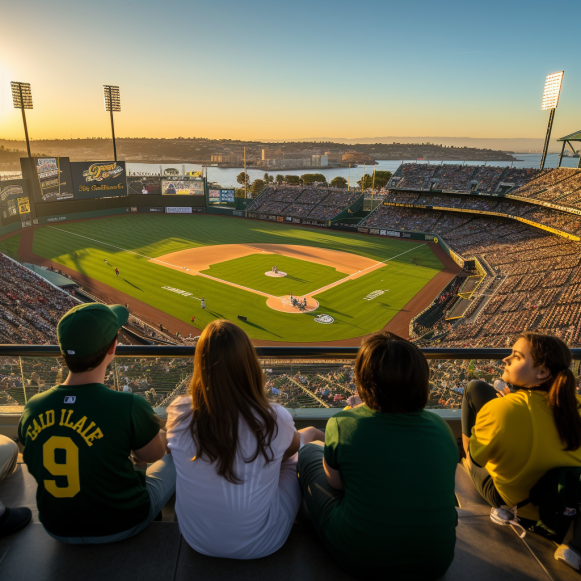MLB to vote on A’s relocation to Las Vegas in November, but Oakland is seen as possible expansion city

Dave Stewart: Oakland ownership group would need to emerge immediately
The A’s may be gone, gone, gone, but Major League Baseball may return to Oakland soon.
An industry source confirmed to the Bay Area News Group on Thursday that MLB owners will vote in November to give A’s owner John Fisher final approval to move the club to Las Vegas. To complete the relocation, the A’s would need 75% approval.
But there was some good news for Oakland baseball fans this week: According to USA Today, the city could join Nashville as a top candidate for expansion teams in the next five years.
However, for that to happen, a wealthy ownership group must emerge quickly. It also needs the funds to pay the estimated $2 billion expansion fee and construct a ballpark.
“If there’s an ownership group that wants to try to get a team in Oakland, they should voice themselves now and arrange meetings with the commissioner and show why Oakland is viable for an expansion team and what they plan to do as an ownership group,” former A’s star Dave Stewart said this week by phone.
“That’s exactly what needs to happen. Expansion is accelerating. It will not wait until 2025 for a group from Oakland to emerge. It is my belief that by 2025, Oakland will have missed out on expansion.”
Oakland mayor Sheng Thao told The Athletic in July that an expansion team would be welcomed.
Stewart has a dog in the fight, but it’s not from his hometown of Oakland. For the past four years, he has led an effort to bring baseball to Nashville.
Stewart’s dream has always been to lead MLB’s first majority-Black-owned team and to diversify baseball front offices.
Stewart is no longer interested in Oakland getting an expansion team.
“I’ve got to be honest, I’m not against them, but I’m not rooting for them,” Stewart admitted. “I believe there are a number of political issues that must be addressed before Oakland can see expansion.” And who do you blame now that John Fisher is gone to Las Vegas if things don’t work out?”
Baseball hasn’t grown since Arizona and Tampa Bay were added in 1998. Commissioner Rob Manfred stated in July that he is ready to add two more teams once the ballpark issues in Tampa and Oakland are resolved. Manfred declined to comment on Oakland being a potential expansion city through a spokesperson.
Stewart remains convinced that Oakland is a baseball town that will fill any stadium when the team is winning. He expressed disappointment that the team intends to depart for Vegas. Stewart, however, does not entirely blame Fisher for the A’s inability to reach a stadium agreement.
“I’m a firm believer that when things don’t work, it’s because of two, not one,” he said, implying that the city of Oakland should share some of the blame.
There is precedent for a city regaining its team through expansion after it was relocated.
The Milwaukee Braves relocated to Atlanta in 1966, but the Seattle Pilots returned in 1969. The Seattle Mariners were added as an expansion team in 1977.
After losing the A’s to Oakland in 1968, Kansas City received the Royals as an expansion franchise in 1969.
In Washington, the Senators relocated to Texas to become the Rangers in 1971, but were renamed the Nationals when the Montreal Expos relocated in 2004.
After filing lawsuits against baseball in an attempt to challenge MLB’s antitrust exemption, both Kansas City and Seattle were granted expansion teams. East Bay Congresswoman Barbara Lee and fellow Rep. Mark DeSaulnier hinted in June that they might challenge MLB’s anti-trust exemption because baseball was “actively incentivizing” the A’s to leave Oakland.
According to Victor Matheson, a sports stadium expert and College of Holy Cross professor of sports economics, for an ownership group to emerge for an expansion team in Oakland, it would need to have plans for a new stadium that do not rely as heavily on taxpayers.
“We don’t have a lot of evidence that professional sports make regular taxpayers rich,” Matheson explained. “California in general, not just the Bay Area, has done a good job, other than in Sacramento, of holding the line that we shouldn’t dump a bunch of money into private businesses that aren’t infrastructure.”
Matheson is concerned about a surge in massive public funding for new stadiums. Many of the stadiums that signed 30-year contracts in the 1990s will soon see those contracts expire, causing teams and cities to experience “stadium envy.”
Andy Dolich, a former A’s vice president who now runs his own sports consulting firm in the Bay Area, believes the Bay Area should be a two-team town, and that with public transportation already in place for the Coliseum site, Oakland could entice an ownership group.
However, it will not be cheap.
“For the expansion opportunity, you’re looking at a $2.2 billion fee, which is what the commissioner has mentioned,” Dolich said. “You’re going to demand $2.2 billion just to sit at the table.” That has to be one of the largest antes ever in a card game. Then you have to build a ballpark, and in some cases, like in Oakland, level an existing one and build a new one. You must construct an infrastructure. It is far more than $2.2 billion. “Who is writing that check, anywhere?”
Dolich mentioned Joe Lacob, the Warriors’ majority owner, who told the Chronicle in July that he’s made offers to buy the A’s with the goal of privately financing a new stadium in Oakland. Fisher, however, has turned down those offers, and as the A’s track record shows, constructing a new home in the East Bay is no easy task.




